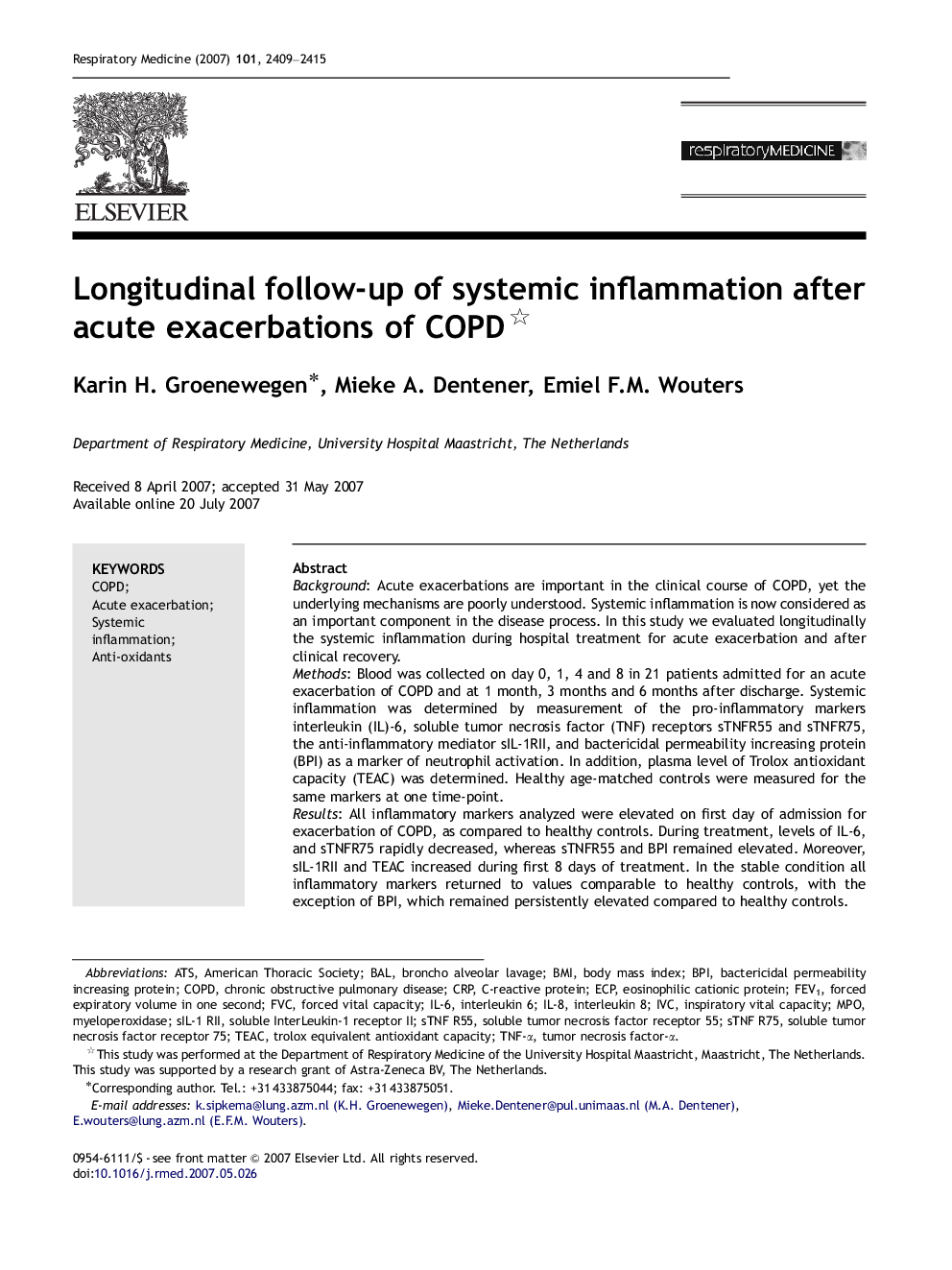| Article ID | Journal | Published Year | Pages | File Type |
|---|---|---|---|---|
| 4211851 | Respiratory Medicine | 2007 | 7 Pages |
Background: Acute exacerbations are important in the clinical course of COPD, yet the underlying mechanisms are poorly understood. Systemic inflammation is now considered as an important component in the disease process. In this study we evaluated longitudinally the systemic inflammation during hospital treatment for acute exacerbation and after clinical recovery.Methods: Blood was collected on day 0, 1, 4 and 8 in 21 patients admitted for an acute exacerbation of COPD and at 1 month, 3 months and 6 months after discharge. Systemic inflammation was determined by measurement of the pro-inflammatory markers interleukin (IL)-6, soluble tumor necrosis factor (TNF) receptors sTNFR55 and sTNFR75, the anti-inflammatory mediator sIL-1RII, and bactericidal permeability increasing protein (BPI) as a marker of neutrophil activation. In addition, plasma level of Trolox antioxidant capacity (TEAC) was determined. Healthy age-matched controls were measured for the same markers at one time-point.Results: All inflammatory markers analyzed were elevated on first day of admission for exacerbation of COPD, as compared to healthy controls. During treatment, levels of IL-6, and sTNFR75 rapidly decreased, whereas sTNFR55 and BPI remained elevated. Moreover, sIL-1RII and TEAC increased during first 8 days of treatment. In the stable condition all inflammatory markers returned to values comparable to healthy controls, with the exception of BPI, which remained persistently elevated compared to healthy controls.Conclusion: This study clearly demonstrates upregulation of systemic inflammation in acute exacerbations of COPD. Attenuation of systemic inflammation may offer new perspectives in the management of COPD patients to reduce the burden of exacerbations.
